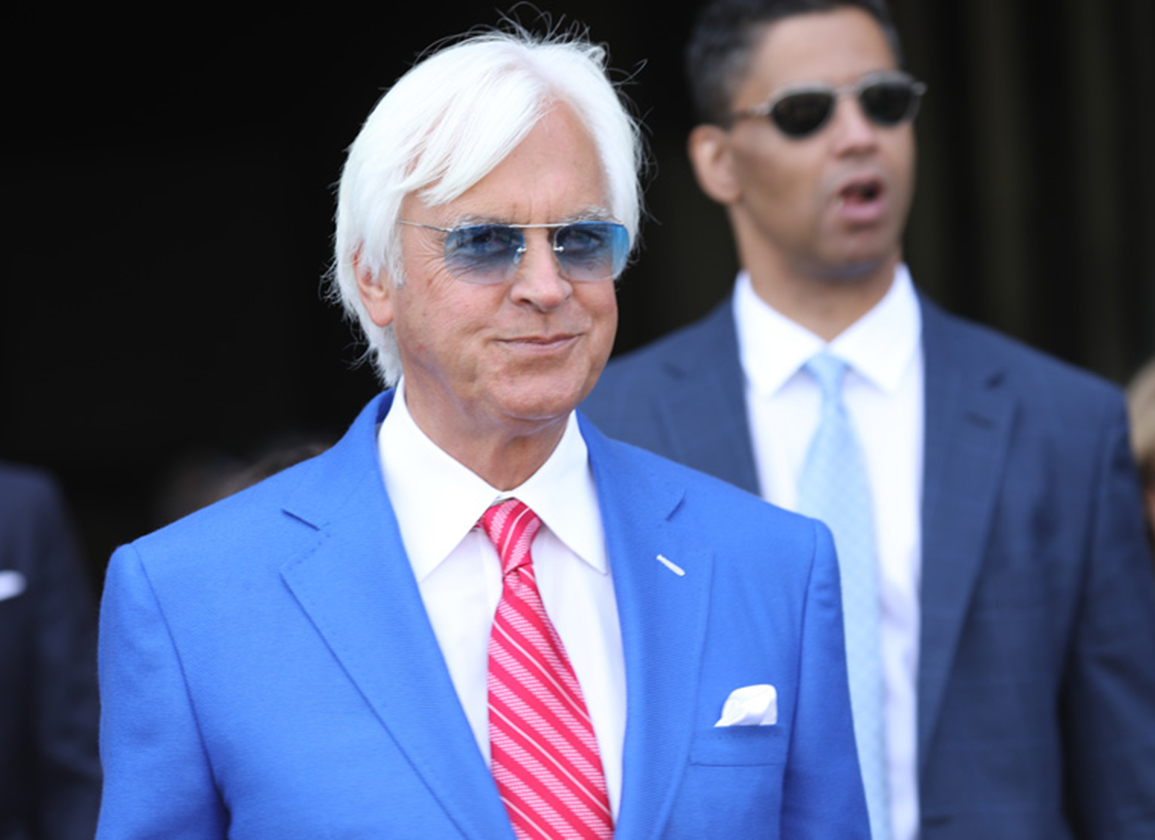The debate over whether or not Medina Spirit's 2021 GI Kentucky Derby disqualification for betamethasone was the result of an injection or the application of an ointment was a focal point in the fourth day of testimony at Bob Baffert's appeal before a Kentucky Horse Racing Commission (KHRC) hearing officer in Frankfort, Kentucky, on Thursday.
That argument has percolated for the better part of 16 months in various hearing and courtroom settings. It is now being brought up again in front of the KHRC hearing officer to adjudicate the Hall-of-Fame trainer's attempt to expunge from his record a 90-day suspension (that Baffert has already served) for the infraction. The appeal also seeks to reverse the KHRC's disqualification of Medina Spirit from the Derby.
Back in December, Baffert's legal team stated that third-party testing on the colt's urine “definitively confirmed” and had “scientifically proven” that the type of betamethasone that showed up in Medina Spirit's post-race positive test is the type that comes from a topical ointment and not via an intra-articular injection.
The distinction is important because Baffert believes the proper resolution of the betamethasone overage hinges on how it was administered to Medina Spirit. He has claimed Kentucky's medication rules only apply to the injectable form of that drug.
But the KHRC has maintained that a positive finding is a positive finding, and that it doesn't matter how the Class C medication entered Medina Spirit's system.
Baffert has claimed that Medina Spirit was treated with the betamethasone-containing ointment Otomax as late as Apr. 30 (the day before his Derby win) to help deal with a skin lesion, and he has denied that the colt's joints were ever treated with the injectable form of that drug.
Ron Flatter of Horse Racing Nation (HRN) provided key points of Thursday's proceedings. His reporting is summarized below by TDN.
Flatter wrote that Jennifer Wolsing, the KHRC's general counsel, said she had two depositions to back up her contention that Medina Spirit could have been injected with betamethasone.
Dr. Scott Stanley, the director of the equine testing laboratory at the University of Kentucky, testified as a witness for the KHRC.
According to HRN, Stanley was questioned about the third-party testing by Dr. George Maylin, director of the New York State Equine Drug Testing lab. Last summer, Baffert's attorneys got a court order to allow outside testing on the Medina Spirit samples.
Flatter wrote that “Maylin concluded last fall that the medication 'resulted from the topical administration of Otomax and not an injection of betamethasone.'”
Testifying eight months later on Aug. 25, Stanley criticized the process by which Maylin tested the Medina Spirit urine sample and offered technical reasons why it was flawed, HRN reported.
“I don't agree with…Dr. Maylin's conclusion that says the data definitively shows the topical administration of betamethasone…. I don't believe that the data definitely concludes that,” HRN quoted Stanley as testifying.
Yet under cross-examination by the Baffert side, Stanley also said, “I do not have any evidence that Medina Spirit was injected with any product,” HRN reported.
Dr. Mary Scollay, the current executive director of the Racing Medication and Testing Consortium (and previously the KHRC's equine medical director), testified at the request of the KHRC.
HRN reported that Scollay said there was no record of a diagnosis when Baffert's veterinarian, Dr. Vince Baker, recommended that Otomax to be applied to Medina Spirit in April 2021. Nor was there any record provided on dosage and frequency.
“Otomax is FDA-approved for use in dogs,” Scollay said, according to HRN. “I would hesitate to describe Medina Spirit as a dog. That would be most unfair.”
Flatter wrote that, “Under cross-examination, Brewster attacked Scollay's credentials for lacking backside experience, saying that Baker has had a great deal of experience in stable work. And he recounted when, in a deposition, Scollay said anyone wanting more expertise on Otomax should ask a veterinarian who works on the backside.”
After a scheduled weekday off on Friday, the hearing resumes on Monday, with Tuesday the agreed-upon date both parties are targeting for finishing the proceedings. (See coverage of previous days here, here, and here.)
Hearing officers hired by racing commissions typically take months to issue a written report and recommended findings.
Not a subscriber? Click here to sign up for the daily PDF or alerts.






